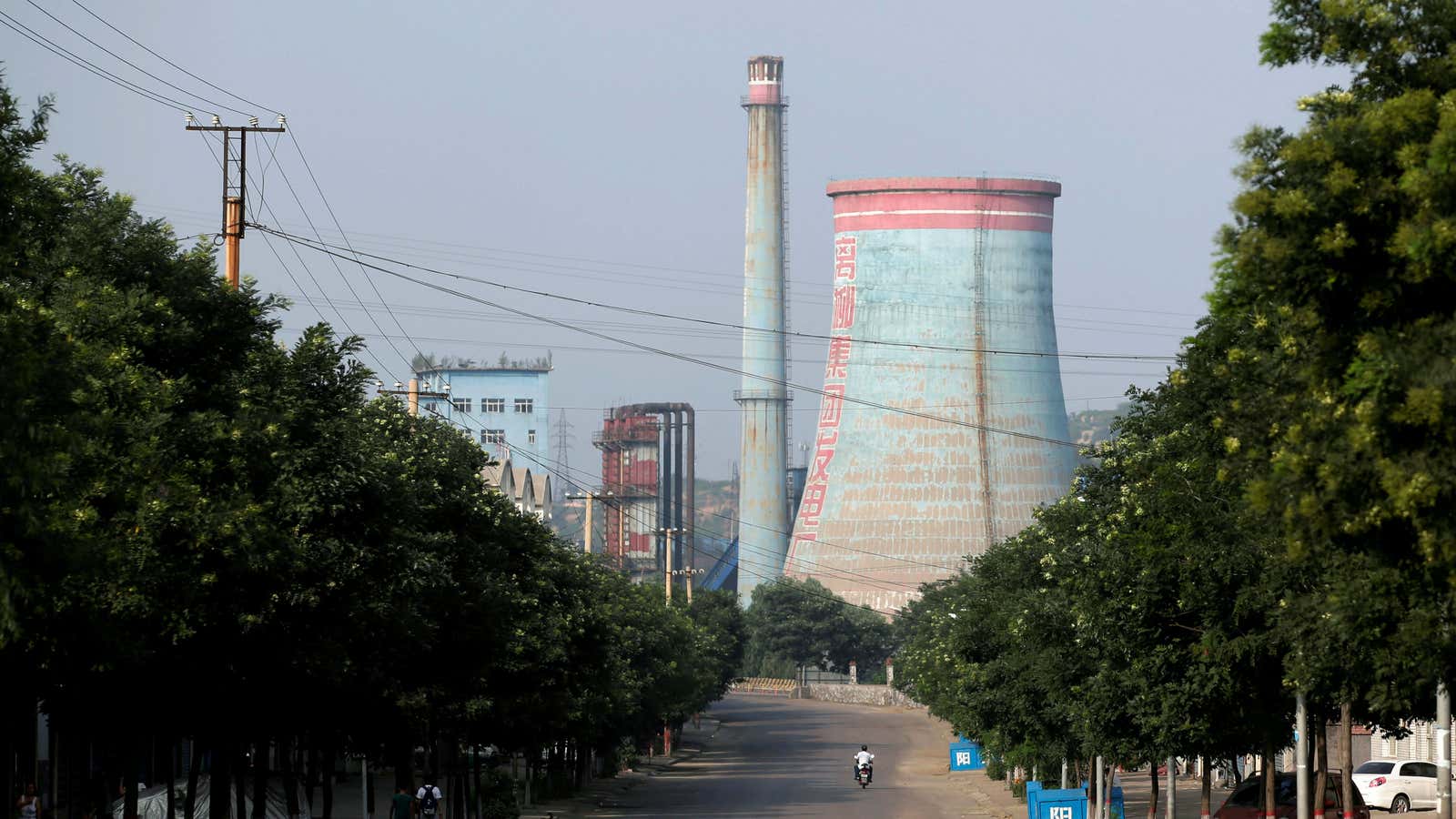HSBC, Europe’s largest bank, said today (April 20) that it plans to extend its ban on financing new coal-power plants to even more countries, will prohibit the financing of new offshore oil and gas projects in the Arctic, and won’t support new greenfield oil-sands projects.
The bank’s head of sustainable finance, Daniel Klier, in a statement attached to an updated energy policy, described the moves as part of HSBC’s efforts to help clients transition to a low-carbon world that achieves the Paris climate agreement of keeping global temperature increases to below 2°C.
As scrutiny of the financial sector’s role in carbon-emitting activities increases, some banks have stopped giving loans to carbon-heavy projects such as the extraction of oil and gas, and the pipelines that carry them. French bank BNP Paribas is considered to be among the leaders.
The industry’s entanglement in fossil-fuel energy can be seen in the limitations of HSBC’s energy policy, which describes the bank as a “a longstanding supporter” of the energy sector. “Our primary aim is to support our customers in the transition from a high-carbon to a low-carbon economy,” the policy said. “If we simply stop banking customers involved in high-carbon activities, this is unlikely to expedite the transition to a low-carbon economy and may even have serious negative consequences.”
Not a worldwide ban—yet
This policy will ban financing to countries that have mostly stopped opening new coal plants but leave the door open to countries that are.
HSBC said that India, Bangladesh, and Vietnam would be exempt from the ban on financing for new coal-power plants to balance “local humanitarian needs with the need to transition to a low-carbon economy” until 2023. Financing would be provided to projects in these countries provided there aren’t reasonable alternatives to coal and the carbon intensity fell under a certain threshold.
Environmental activist groups, including Greenpeace, have welcomed the banks’ new restrictions on tar-sands activities, which are a particularly carbon-intense source of energy. Greenpeace said this policy would prohibit HSBC from financing the contentious Keystone XL pipeline, noting that the bank had previously provided financing for the company building the pipeline extension, TransCanada. Asked about Keystone XL, a spokesperson for HSBC told Quartz: “We’re unable to comment on specific clients or situations.”
Big banks have gotten deeper into oil
Last month, a report by a collection of environmental pressure groups said that big banks across the globe increased their financing of “extreme” fossil-fuels activities by 11% to $115 billion in 2017. These activities included oil from tar sands, the Arctic, and ultra-deepwater wells; liquefied natural gas; coal mining, and coal power. The groups estimated that last year HSBC provided $5.6 billion worth of financing, up from $3 billion the previous year. HSBC declined to comment on the claims in this report. The policy mostly refers to new business, saying less about existing loans and clients.
Despite the limitations in HSBC’s policy, the bank is increasingly considering its role in ensuring a low-carbon world. Its coal policy still leaves open the possibility to support carbon-capture technology should it become more widely utilized. Last year, HSBC committed to providing $100 billion of sustainable financing and investment by 2025, and is making internal changes, including a plan to source 100% of its electricity from renewable sources by 2030.
Still, there’s a long way to go. As the bank says, “the $100 billion acknowledges the scale of the challenge in making the transition to a low carbon future.”
